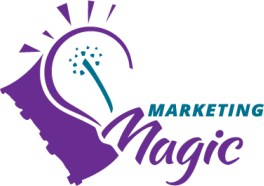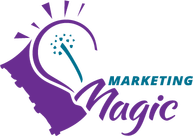Great news! You've just received a message that the news media wants to interview you for a story. This could help your business to become better known.
But you've never done an interview before and you're not quite sure how to handle it. What if you say the wrong thing and hurt your company's reputation?
There are a number of things you can do to prepare for a media interview to ensure it goes smoothly. You should start by asking yourself if you are the best person for the job. If the thought of speaking to the media has your knees quaking, maybe you should look for another spokesperson, one who is very comfortable with the material and is well-prepared to field questions.
Return all calls promptly. This doesn’t mean you need to be prepared to do the interview, but it will at least allow you to learn more details about it and the deadline. (Remember that reporters often work against tight deadlines.)
Then agree on a time for the reporter to call you back. The more cooperative you are, the more likely you will be called for future interviews.
When you start planning for the actual interview, think about the messages you want to get across. Clients are often surprised when I suggest this. Many people assume that they are doing an interview simply to answer the reporter’s questions. But let's face it, this is a chance to get your story out, too.
Determine three main points you want to convey during the interview. Also, think about what conclusion you want the reporter to take away.
Be sure you communicate this up front because you may be nervous and forget later, or the interviewer may cut you off before you get to it.
Do as much research as you can to find out about the interviewer, the publication, or the station. If you learn that the interviewer has a reputation for asking difficult questions, be prepared. Practice responses to questions you think may be posed.
It isn't always possible, but try to be interviewed in person. Research has shown these stories tend to be more accurate. It also gives you opportunity to give the reporter relevant facts and figures in written form.
During the interview, try to include your three main points as much as possible. It may sound repetitive to you, but remember, the reporter is hearing your story for the first time.
Since your interview is likely to be edited prior to publishing or broadcasting, by repeating your main points, you will reduce the possibility that your key messages will be lost.
No matter how friendly reporters are, remember they are still professionals who are paid to be skeptical and ask tough questions. Always try to answer their questions. And while it’s critical to be truthful, this doesn’t mean you need to disclose more than you wish.
If a question is vague, don't be afraid to ask for clarification. If you don't know the answer, say so and offer to get back to the reporter.
Interviews are not friendly chats so don’t aim to be conversational. Most inexperienced spokespeople don’t know when to stop talking. Don't be afraid of "dead air". Avoid over answering by using short sentences.
Recognize that once the interview is over you have no control over the outcome. You cannot insist that reporters record only positive comments. Even if the interview went smoothly, you may be disturbed to find that a comment was taken out of context or reported erroneously.
Some additional tips are included below. You may want to keep them handy for review the next time the media calls.
But you've never done an interview before and you're not quite sure how to handle it. What if you say the wrong thing and hurt your company's reputation?
There are a number of things you can do to prepare for a media interview to ensure it goes smoothly. You should start by asking yourself if you are the best person for the job. If the thought of speaking to the media has your knees quaking, maybe you should look for another spokesperson, one who is very comfortable with the material and is well-prepared to field questions.
Return all calls promptly. This doesn’t mean you need to be prepared to do the interview, but it will at least allow you to learn more details about it and the deadline. (Remember that reporters often work against tight deadlines.)
Then agree on a time for the reporter to call you back. The more cooperative you are, the more likely you will be called for future interviews.
When you start planning for the actual interview, think about the messages you want to get across. Clients are often surprised when I suggest this. Many people assume that they are doing an interview simply to answer the reporter’s questions. But let's face it, this is a chance to get your story out, too.
Determine three main points you want to convey during the interview. Also, think about what conclusion you want the reporter to take away.
Be sure you communicate this up front because you may be nervous and forget later, or the interviewer may cut you off before you get to it.
Do as much research as you can to find out about the interviewer, the publication, or the station. If you learn that the interviewer has a reputation for asking difficult questions, be prepared. Practice responses to questions you think may be posed.
It isn't always possible, but try to be interviewed in person. Research has shown these stories tend to be more accurate. It also gives you opportunity to give the reporter relevant facts and figures in written form.
During the interview, try to include your three main points as much as possible. It may sound repetitive to you, but remember, the reporter is hearing your story for the first time.
Since your interview is likely to be edited prior to publishing or broadcasting, by repeating your main points, you will reduce the possibility that your key messages will be lost.
No matter how friendly reporters are, remember they are still professionals who are paid to be skeptical and ask tough questions. Always try to answer their questions. And while it’s critical to be truthful, this doesn’t mean you need to disclose more than you wish.
If a question is vague, don't be afraid to ask for clarification. If you don't know the answer, say so and offer to get back to the reporter.
Interviews are not friendly chats so don’t aim to be conversational. Most inexperienced spokespeople don’t know when to stop talking. Don't be afraid of "dead air". Avoid over answering by using short sentences.
Recognize that once the interview is over you have no control over the outcome. You cannot insist that reporters record only positive comments. Even if the interview went smoothly, you may be disturbed to find that a comment was taken out of context or reported erroneously.
Some additional tips are included below. You may want to keep them handy for review the next time the media calls.
|
Tips for Doing a Media Interview
Do's
|
Don'ts
|







